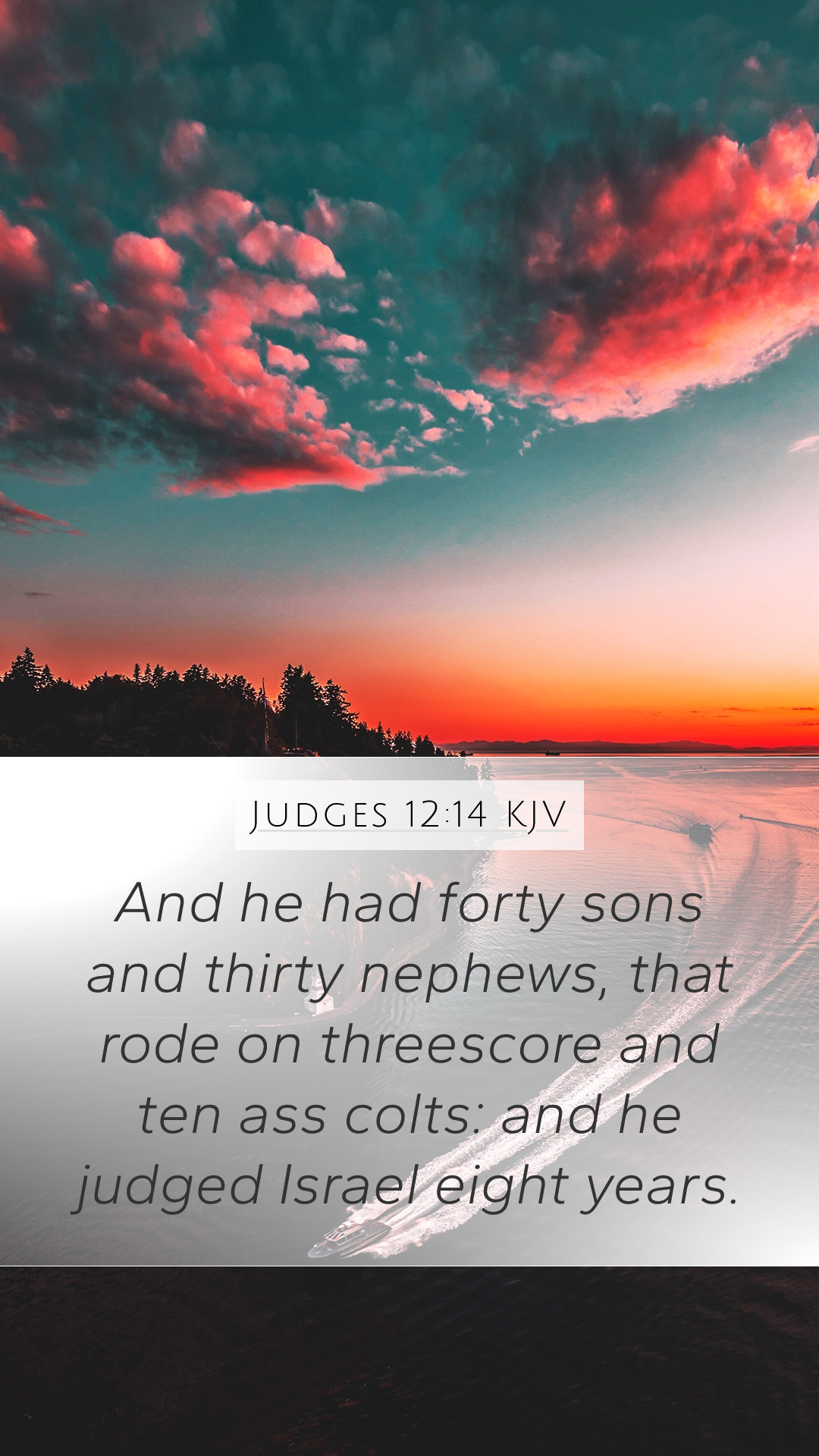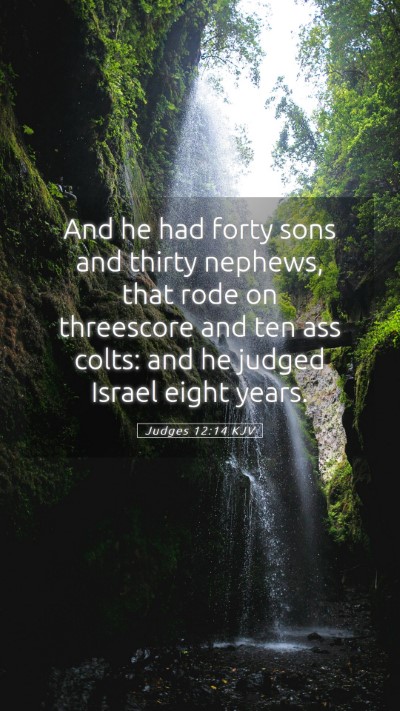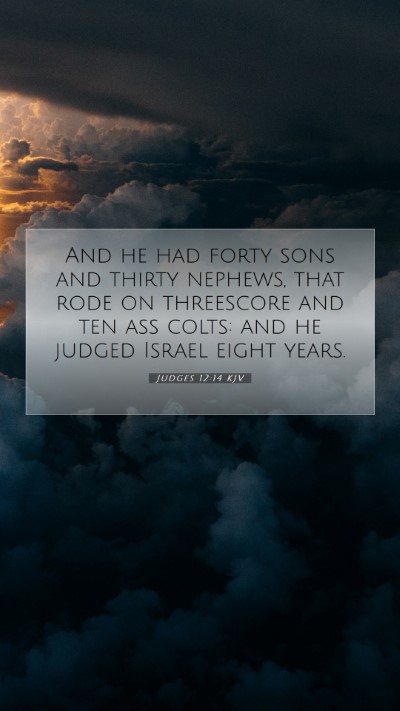Old Testament
Genesis Exodus Leviticus Numbers Deuteronomy Joshua Judges Ruth 1 Samuel 2 Samuel 1 Kings 2 Kings 1 Chronicles 2 Chronicles Ezra Nehemiah Esther Job Psalms Proverbs Ecclesiastes Song of Solomon Isaiah Jeremiah Lamentations Ezekiel Daniel Hosea Joel Amos Obadiah Jonah Micah Nahum Habakkuk Zephaniah Haggai Zechariah MalachiJudges 12:14 Meaning
What is the meaning of Judges 12:14?
And he had forty sons and thirty nephews, that rode on threescore and ten ass colts: and he judged Israel eight years.
Judges 12:14 Bible Verse Meaning
Bible Verse Meaning and Commentary on Judges 12:14
In Judges 12:14, we find a brief yet poignant moment in the narrative of Jephthah, a judge of Israel. This verse highlights not only the physical attributes of Jephthah's lineage but also offers a deeper insight into his role and the legacy left in the context of Israel’s history.
Verse Text
Judges 12:14: "And he had fourteen sons and thirty grandsons, who rode on seventy donkeys; and he judged Israel eight years."
Comprehensive Analysis
This verse serves as a summary of Jephthah's family and his time as a judge. The specific numbers mentioned are significant as they provide a glimpse into the prosperity and influence he held during his leadership.
-
Family Lineage:
Jephthah's fourteen sons and thirty grandsons underline his fruitful lineage, symbolizing strength and stability. Matthew Henry emphasizes that the mention of the sons and grandsons points toward a legacy of leadership within his family.
-
Symbolism of Donkeys:
Riding on donkeys symbolizes nobility and peace in the ancient Near East; thus, Jephthah’s family rode donkeys as a sign of their esteemed status and role as leaders.
-
Judgment Period:
The eight years of his leadership suggest a period of relative stability in Israel, reflective of Jephthah's capability as a judge. Albert Barnes notes that this duration calls attention to the transitional nature of the judgeship in Israel—often subject to turmoil and conflict.
Historical Context
Understanding the historical backdrop during Jephthah's judgeship is crucial. The Israelites were often embroiled in struggles against neighboring nations, and judges provided necessary leadership amidst chaos. Adam Clarke points out that Jephthah’s own story is one filled with personal and national strife, making his eventual leadership all the more remarkable.
Spiritual Reflection
This verse encourages deep reflection on the qualities of leadership and legacy in the faith community. It invites readers to consider how personal and familial dimensions impact broader community leadership.
Applications for Daily Life
In modern life, one can take away valuable lessons regarding the importance of family, leadership, and community. The strength of a leader often stems from the support and values instilled within their family, echoing the Biblical wisdom across generations.
Cross References
- Genesis 30:9-10: The significance of lineage and offspring in Israel's heritage.
- Judges 11:1-3: Context of Jephthah’s rise to judgeship amidst family rejection.
- Judges 5:2: The role of leaders in Israel’s victories and communal deliverance.
Conclusion
Judges 12:14 provides not only a factual account of Jephthah's family and tenure but also opens the door to broader themes of legacy, leadership, and faith within the context of community. This exploration serves as a significant tool for Bible study groups, and is essential for anyone interested in Bible verse interpretations and Bible verse meanings.


